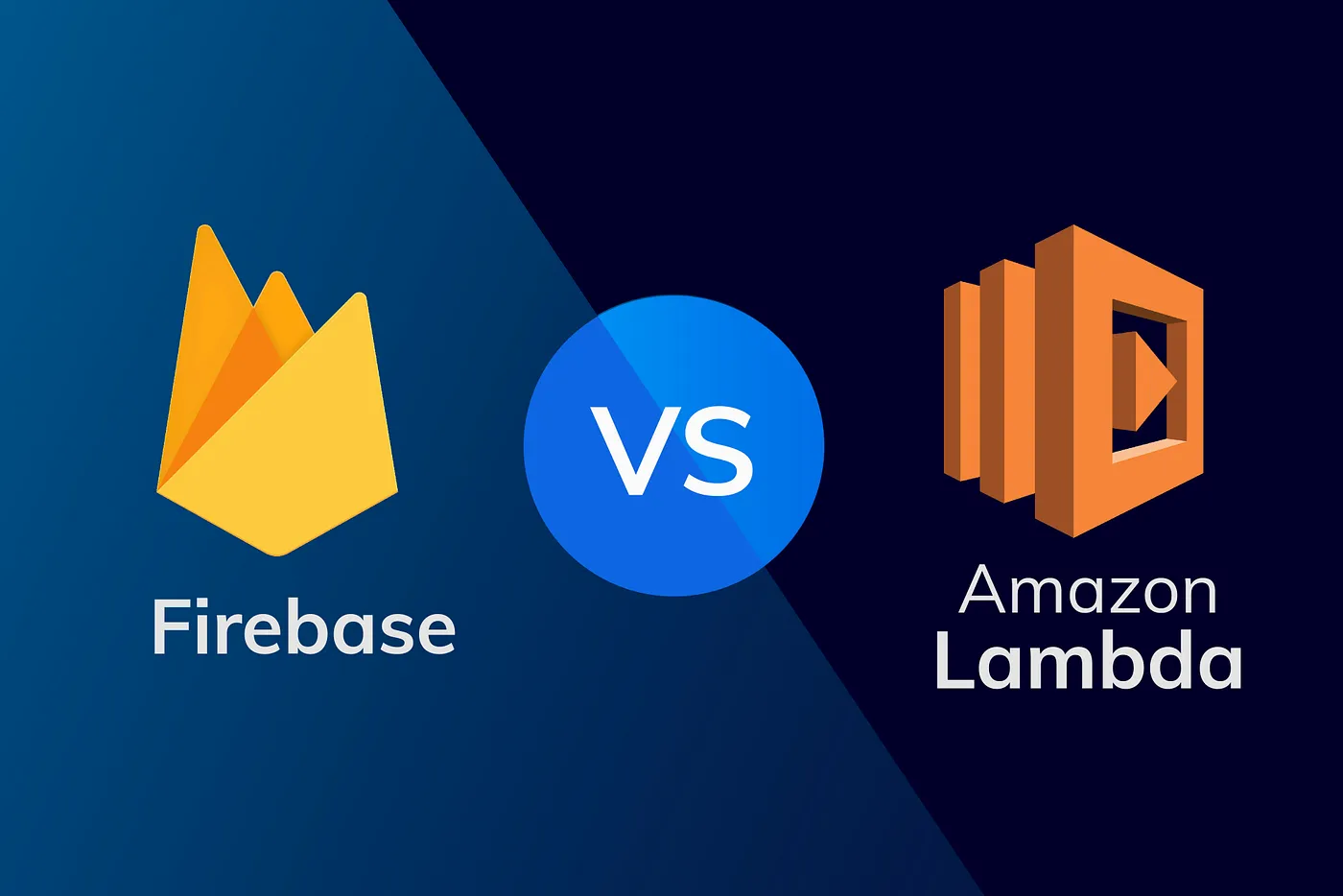Nowadays apps contain more robust features than ever before which makes storing an application on a hosting service a real challenge.
However, with serverless architectures, you can build your infrastructure from different components in the cloud and send them to managed servers. AWS or Google Firebase will use resources only when it needs them. It means you only pay for the runtime and it’s easy for the app to scale when needed.
Now that you’ve decided to choose the serverless architectures, which vendor option should you go for?
Amazon Web Services (AWS)
Amazon Web Service is a widely adopted and the largest cloud platform in this world. It offers more than 175 full feature services and customizable cloud computing solutions. AWS is made up of a variety of cloud computing products and services. Servers, storage, networking, AI and ML Service, remote computing, Alexa voice assistant, Chatbot Service, Alexa voice assistant, mail, mobile apps development, and security are all available through AWS.
AWS Lambda is an event-controlled, serverless computing platform provided by Amazon as a part of Amazon Web Services. This service runs code in response to events and automatically manages the computing resources required by that code. You could execute code for nearly any application or backend service using Lambda, and you don't have to worry about management.
AWS Lambda benefits
No need to manage servers
With AWS Lambda you don’t need to manage and constantly keep an eye on infrastructure. Just write, upload, and run the code without provisioning or managing servers.
Constant scaling
By running code in response to each event, AWS Lambda scales your application automatically. Your code runs and at the same time processes each trigger separately, scaling accurately with the size of the workload. It enables continuous scaling from several requests per day to thousands per second.
Cost-optimization
AWS Lambda allows you to be charged only for the compute time you consume. You just pay for every millisecond your code executes and the number of times your code is triggered.
Highly secure services
AWS has been created to offer the most flexible and reliable cloud computing environment. The AWS infrastructure satisfies the security requirements of multiple businesses worldwide. It boasts a number of robust security tools that can support security standards with ease.
More functionality
AWS is offering more features and services as compared to any other cloud service provider.
AWS Lambda drawbacks
Absence of experts
Many firms have incorporated AWS as a cloud computing platform into their company operations since its inception. Nevertheless, there are just some qualified AWS professionals in the industry. As a result, numerous businesses are having trouble hiring qualified personnel for AWS adoption. It might be regarded as an AWS disadvantage.
Data utilization
Data-related regulations are not all treated equally. Without your knowledge, Amazon Web Services might offer foreign businesses and governmental organizations permission to use your information.
EC2 restrictions on Amazon
The negative aspect of AWS is resource restriction due to geographical regions. As a consequence, the number of resources available to you is determined by your setting or context. With AWS, businesses can't consume that many resources. It is a protection mechanism that prohibits persons with malevolent intentions from launching cyberattacks utilizing the firm's assets. If you require additional resources, you may always make a request. Thus long as your goals are clear and pure, it shouldn't be a problem.
Firebase
Firebase stands as Google's Baas also mentioned as Backend as a Service. Such solutions and tools can save time and ensure businesses build high-quality mobile and web applications without having to start from the beginning each time. Firebase becomes a useful cloud computing service model for integrating app developers' applications to APIs and back-end cloud storage abstracted by back-end apps. It's critical that Firebase be based on Google's architecture. Google Firebase's mission is to aid mobile and digital software developers in their efforts. They place a high value on app development teams. Their services are divided into three categories:
- Creating better applications
- Enhance the efficiency of the app
- Expanding Your Business
Benefits of Firebase
Managed Service
Similar to Lambda, Firebase takes care of the infrastructure and scaling. It also can monitor your app 24/7 to ensure smooth performance.
Firebase is enhanced by Google Analytics
Firebase allows easily tracking a user’s journey and identifying whether the user is using your application on a laptop, mobile phone, or tablet.
Real-time database
The cloud-hosted real-time NoSQL database allows synchronizing data in Firebase. It provides easy access for developers to the data within any device and assists engineers in back-end code execution.
Allows fixing bugs immediately
Bug issues can slow down the app performance and speed of navigation which ultimately affects user engagement. However, Firebase includes a crash reporting feature that warns you immediately if there’s a bug and allows improving application performance.
Fast and secure
Firebase is easy to use and has a set of tools and services that are essential to speed up the application development process. It also takes care of your application and data security.
Firebase drawbacks
Restricted data migration
Any data is kept on Firebase, which is a major disadvantage of utilizing BaaS services as your program's backend. Firebase strictly prohibits data mobility unless it provides a migration solution that enables seamless data transmission. Subscribers become reliant on the service. There is no alternative option to migrate the app to another provider if you wish to change the backend of the app.
Storage limitations for actual data
In most cases, we employ a real-time database as our primary store. Nevertheless, it is not a viable alternative. The main flaw is its lack of questioning capabilities. You won't be able to send a query for more than one key at once. The platform does not have a mechanism to limit your information because the whole database is made up of JSON files. It isn't the same as the SQL syntax.
Lock-in of vendors
Firebase as a service has little to do with the subject of vendor lock-in. That problem frequently emerges when utilizing BaaS systems. Firebase's lack of migration tools for transferring data to another service, on the other hand, might be viewed as a drawback.







